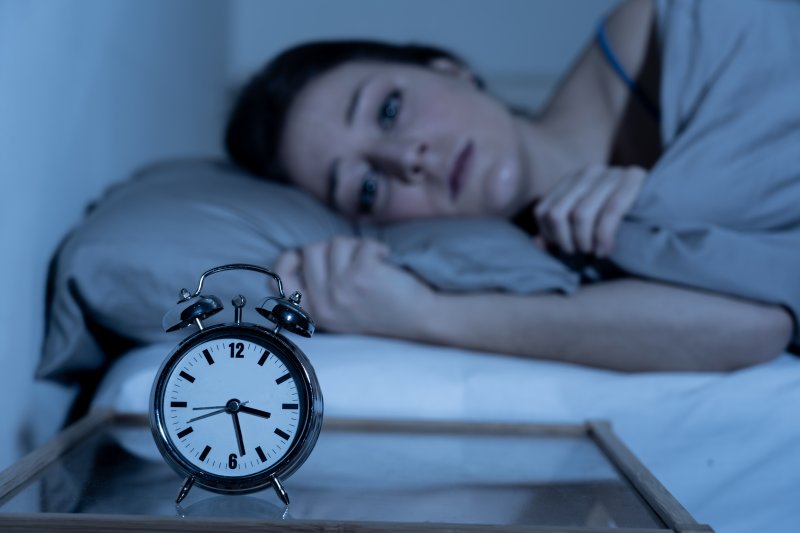Restless Nights: The Link Between Anxiety and Sleep Apnea
May 25, 2021

If you have sleep apnea in Eugene, chances are you also suffer from some form of anxiety. As time passes, more and more evidence is found indicating a connection between these two conditions. Not only do they share several possible side effects such as insomnia, but it’s possible that one could make the other worse. When anxiety and sleep apnea are getting in the way of a good night’s sleep, both have to be treated immediately for the sake of your health; to that end, it’s a good idea to learn as much as possible about how these disorders can be linked.
How are Sleep Apnea and Anxiety Linked?
Sleep apnea is a common sleep disorder where the airway repeatedly becomes blocked while you sleep. The lack of oxygen causes the brain to panic and jolt the body awake, interrupting the sleep cycle. The lack of rest eventually puts your body into sleep debt. As a result, your ability to cope with stress will decrease, which can lead to anxiety. Furthermore, whenever sleep is disrupted on a consistent basis, your brain activity can be altered, affecting mood and the way you think. Finally, sleep apnea tends to lead to higher heart and blood pressure rates, which could end up contributing to a panic attack.
What Does the Research Say About Sleep Apnea and Anxiety?
According to a 2012 study, more than half of patients with sleep disorders also some form of depression or anxiety. Other studies have suggested that sleep apnea may make the symptoms of PTSD, such as sleeplessness and nightmares, even more severe. In general, patients who have been diagnosed with sleep apnea or another sleep disorder tend to be more likely to suffer from mood disorders, anxiety, psychosis, and other such conditions.
It should be noted that correlation does not always indicate causation. Even if sleep apnea and anxiety are found together, it doesn’t necessarily mean one caused the other. Both could easily be a product of stress, for example. However, there has been evidence indicating that treating sleep apnea with CPAP therapy could also lead to a decrease in anxiety.
How Can Sleep Apnea and Anxiety Be Treated?
Once you’ve been diagnosed with sleep apnea or anxiety, you should talk to your doctor about possible treatments. CPAP therapy can help with a sleep disorder, but for those who are CPAP intolerant, an oral appliance is often the more comfortable option. The proper treatment for anxiety will depend on what form it takes.
Snoring in Eugene could be indicative of bigger problems for your physical and mental health. Don’t let sleep apnea or anxiety go undiagnosed for too long; get in touch with your doctor or a sleep expert right away to have the issue addressed at its source.
About the Author
Dr. Ivan Paskalev takes pride in being able to treat sleep apnea so that his patients can lead healthier, more well-rested lives. He is currently a member of the American Academy of Dental Sleep Medicine and is currently pursuing the American Academy of Dental Sleep Medicine’s Mastery Program. If sleep apnea and anxiety are having a negative impact on your life, schedule a consultation at his practice, Better Sleep Eugene, by visiting his website or calling (541) 291-5605.

